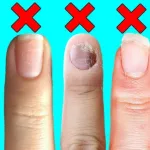Ever caught yourself brushing off a persistent itch or unrelenting fatigue thinking, “It’s just stress, right?” Yeah, I’ve been there too. But here’s the deal—diseases don’t always scream warnings in red flags. Sometimes, they’re subtle. Sneaky. The kind of symptoms we shrug off as normal life mess.
Hold up. Let’s not play that game. Aching joints, stomach upsets, weird headaches… these might be more than “just part of getting older.” Turns out, some signs of common disease show up when we least expect ’em. Here’s what top docs—from Mayo Clinic to the NHS—say you should actually pay attention to when your body’s doing the whispering.
Infectious Diseases: The Quiet Invaders
What’s the Deal With Sneaky Infections?
Real talk: You think you’ve got another “seasonal cold,” but your body’s throwing a deeper party—bacteria, parasites, and other uninvited critters crashing the system. We’re talking viral infections, fungal troublemakers, and the occasional parasite lurking in your sushi roll (gross, but true).
Infectious diseases often start deceptively similar. Fever? Runny nose? Muscle pain? Yawn—it’s just the flu. But sometimes, it’s not. Especially when symptoms don’t follow the script. For example, RSV usually hits kids hardest… but if you’re over 50, under 50, or just worn down from life, it might mimick asthma or even turn into pneumonia. And let’s not forget, stress doesn’t help either—it weakens your immune system, making you an easy target.
Quick story from a friend: She coughed for two weeks straight, then her lips started tingling. Turns out? Bacterial infection from undercooked chicken. Yeah, gross. Lesson: Ignoring red flags doesn’t make them go away.
| Infection Type | Common Signs | Red Flags Begging You to Sit Up |
|---|---|---|
| Colds / Flu | Sniffles, sore throat, coughs | Shortness of breath, three-day fever |
| RSV | Runny nose, low-key wheezing | Sudden fatigue + fever + chest tightness |
| Bacterial (e.g. Strep) | Sore throat, swollen glands | Very red wreaking nosebleeds, high pain |
Chronic Conditions: The body isn’t lying
Is Your Backache A Killer Condition Cloak?
We’ve all felt those “ugh I slept weird” aches. But what if your nagging back pain won’t quit, even after yoga, aspirin, and a new bed? Could be more than your posture. Chronic aches and pains are common health warnings your body throws when something’s off its game—for example, kidney stones hiding near your lower back or type 2 diabetes lowering your circulation.
Here’s the kicker: Sometimes killer condition symptoms aren’t dramatic. Take mental health—real messy. Persistent low mood + fatigue is more than sadness. Sometimes those signs link to heart trouble, or worse. You’re not fragile, but ya gotta watch that stress-gut connection. No, your body isn’t out to get you… it’s trying to. So listen up.
Allergies Thought It Wasn’t That Serious? Think Again
You Didn’t Spot the “Overlooked” Rash?
Ever had that “breakout” you blamed on your skincare then genetics said otherwise? Allergies are straightforward, right? Wrong. If your hives pop up outta nowhere and won’t quit, could be autoimmune red flags instead of rubbing some lotion on it.
My roommate had this nagging stuffiness + red eyes forever every spring. We both thought “pollens,”—except it wasn’t. A quick blood test later showed she was acting out due to her dog’s dander. Not dramatic, but fully worth recognizing. Point? Don’t assume what skin irritations mean until you’ve checked properly.
If coughs + sneezes won’t quit after allergy meds, keep your eyes peeled. Allergies develop over time—killer condition symptoms sometimes start that way too. That’s why knowing your triggers saves isn’t just headaches. It might save your healthy lifespan.
Our Bodies: The Silent Anxiety Signals
Is Your Body Saying Something Your Mind Won’t?
Weirdly, mental health struggles sometimes announce important disease symptoms physically. Chronic fatigue + anxiety? Could mean your heart’s working overtime. Not sleeping well for weeks? Not just burnout—it might be your hormones trying. And let’s not forget stress headaches. Your cranium’s telling you something needs attention.
Here’s what real people don’t realize: some heart attack signs you’ll hear straight in your body, not in your heart. Think nausea, upper back/neck ache, or low energy. Yeah, not every cardiac event starts with clutching your chest. Scared? Me too. That’s the point.
Life-Threatening Signs: When Your Body Screams
Heart Attack: A Cold Genuine Cry You Can’t Miss
I can’t sit on heart issues quietly. The massive symptom everyone ignores? Feeling like you’ve “got this weird pressure in your chest” that won’t quit—even with rest. And yet, many brush it off as heartburn or anxiety. Trust me, it ain’t. Same with arm pain—they say “left sided thing,” but sometimes your whole and right side starts radiating feverline anxiety signals. Noticable, but not dramatic.
“It felt like an invisible elephant asked to sit on me for giggles.” — One patient, post heart attack.
Another is the “tired you can’t sleep through.” The recovery feeling isn’t a vacation—it’s a warning. If chest pressure goes with nausea and sweating? Get the heck checked out.
Stroke-Watch: Not Just Your Grandma’s Watch
Strokes? Not tagged for seniors alone. Many younger too wind up craving emergency rooms because they missed the killer condition symptoms countdown. Here’s your shortlist: facial droop (try smiling), trouble getting words out (ask yourself, “Am I slurring?), sudden double vision, or hands/arms refusing to move when asked (can you raise both arms and keep ’em up?). Got chills? Maybe not.
A quick here tip: If in doubt, start moving. Even minor clumsiness or unsteady walk can scream something urgent. From the American Stroke Association (aha moment alert): Don’t wait for the “full drama” to unravel. Catching tell-tale health signs early makes massive difference.
Deciding Home Care or Doctor Visit
Home Care vs. Docs: When to Play it Cool
So—laid out for a week. Sore throat since the dawn of time. This is what we must clear up. Quick basics from health experts: symptoms < 3 days? Probably a common one, y'all can tackle at home. Bonus points: track symptoms hassle. Something like how to catch a red flag before it gets thrown.
However, if your digestive issues kick your home remedies to the curb, we dive in. Persistent diarrhea after 48 hours doesn’t mean you’re the weak one—it could be Salmonella, parasites, or an awful twist of your gut. The bottom line? Don’t just ride it out if symptoms escalate.
- Reflex-based hack: Check fever levels. If you’re at 101°F (or above), that’s not your average infection.
- Symptom combos? These kill it quietly later. Monitor nausea+headaches or diarrhea+dehydration carefully.
Busylife people often think “I’ll just tough it out.” Tough doesn’t mean smart. Sometimes popping that fever through a health service’s hotline or zoom check-in saves the day.
Prevention Starts Here
Here’s the thing about killer condition symptoms—prevention actually covers the undisclosed signs before they hit. Why wait when you can sidestep a whole bunch of trouble? Think medical screened checkups. Your GP will guide you, datalink-in-hand, long before drama hits. And trust me, ear infections, skin irritations, even those flu strains hitting WI every winter? Identification beats delay every time.
I know. Visits can feel like a life interruption. But figure this: Would you rather spend one hour with the doc or a whole week in a gutter of pain? No brainer. And hey, prevention sometimes involves checking the basics. Like food allergies. That sneaky peanut spill in your lunch might not happen again.
Boosting Immune Health: Not as Boring as It Sounds
Let’s face it—none except your body want immunity to dive. So stick to basics. Even bittersweet truths like pageNo:
- Get regular sleep (try 7 hours—I’m still working on this, but you can do it).
- Stay hydrated (dehydration isn’t just dry mouth; low fluids = fatigue creeping in).
- Move around—energy helps prevent sudden chest pain.
Basic, but those not-so-dramatic disciplines actually help you notice early disease symptoms better. There’s real teamwork when you’ve got blood sugar in check and muscles flowing.
Building Trust with Your Body
Final thought here—if you’re attuned to the signs of common disease, you’re winning the game long before the problem starts. Oh yeah, and about that hypochondria flex we’ve all got (myself included)—this isn’t about panic. It’s about paying attention before panic kicks in. Because here’s the TL;DR: Killer condition symptoms” can be subtle, lifelong things—or they can be fixed if caught sooner. So start noticing. Listen more. Arm those instincts with knowledge.
What’s the overlooked symptom your body’s giving? Drop it below and let’s unpack it together. If you’ve brushed off fatigue, heart issues, skin rashes, or digestive hiccups… let’s not. The body’s got a way of saying “I need help,” and sometimes all it takes is you stepping in.
Remember: Our goal here isn’t fear—it’s relief. Prevention. Action. Now. Because your body isn’t late to the party—it’s throwing the party. Give it the attention, love, and maybe a bleepin’ doctor visit today.
Stay warm. Stay safe. And for the love—see the early signs before they become the final signs.
Final Recap: Your Cheat Sheet to Catching Common Disease Signs
You can consider this list your stealth health move:
- Monitor low-key symptoms: Don’t just ride out coughs, fevers, or tummy whirlwind. Track duration + intensity.
- Listen to your body rallies: Persistent low energy, headaches, or anxious swings aren’t just vibes—you’ve gotta act on them.
- Catch early, not when it’s late. Decide ahead of time what’s “too long” or “too serious” for home cures. Teamwork with your body’s signals = power move.
- Updated expert checkups can save you time, cash, and life. Doctors aren’t just for fevers—they’re for turning “meh” into “nope.”
So, next time you wonder aloud, “Is this just… something I can handle?” Let this be your reminder: some days are tricky, some symptoms aren’t. That’s why we talk about killer condition symptoms openly, catch ’em early, and keep it moving toward healthy living. Your body? It deserves better.
Stay curious. Stay present. And when in doubt—talk to the real experts. Andrabbit hole of today’s blog post? Now you’re ready to ride the signs before they ride you.

























Leave a Reply
You must be logged in to post a comment.